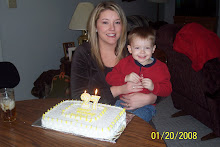

I must be honest, before this class, I did not know the difference between the Newbery Award and the Caldecott Award. I simply thought they were both awards given to children's books. While they are that, they are also so much more. They have some similarities, but the major component of each award is very different.
The Newbery Award is awarded annually to the most distinguished American children's book published in the previous year. This award mainly focuses on the author of the book. It is named for an eighteenth-century English bookseller named John Newbery, and it was the first award ever given for children's books.
The Caldecott Award is also awarded annually, but to the artist or illustrator of the most distinguished American picture book for children. It is named after the nineteenth-century English illustrator Randolph Caldecott.
These awards have several things in common. One, they are both awarded annually by the Association for Library Service to Children, which is a division of the American Library Association (or ALA). Both awards are given to distinguished American children's books; however, both awards are named after Englishmen.
From reading books out of each category of awards for this class, I have come to understand that I enjoy the Newbery Award winners the most. I feel myself gravitating toward books for older students - i.e. middle school and up. I enjoy reading books to my son, but I must admit that I am selfish and enjoy reading books for older children so much more. I like the more complicated plots with less pictures. I have found that I like to paint a picture of characters in my own mind, instead of having them drawn out for me. My son has enjoyed some of the Caldecott Award winners I have read to him, but he is two years old and gets bored easily. This statement is not to slight the Caldecott Award winners, it is just my preference. But I am glad that I at least understand the difference between the two!
Source: http://www.ala.org/ Retrieved on 3-10-08

No comments:
Post a Comment